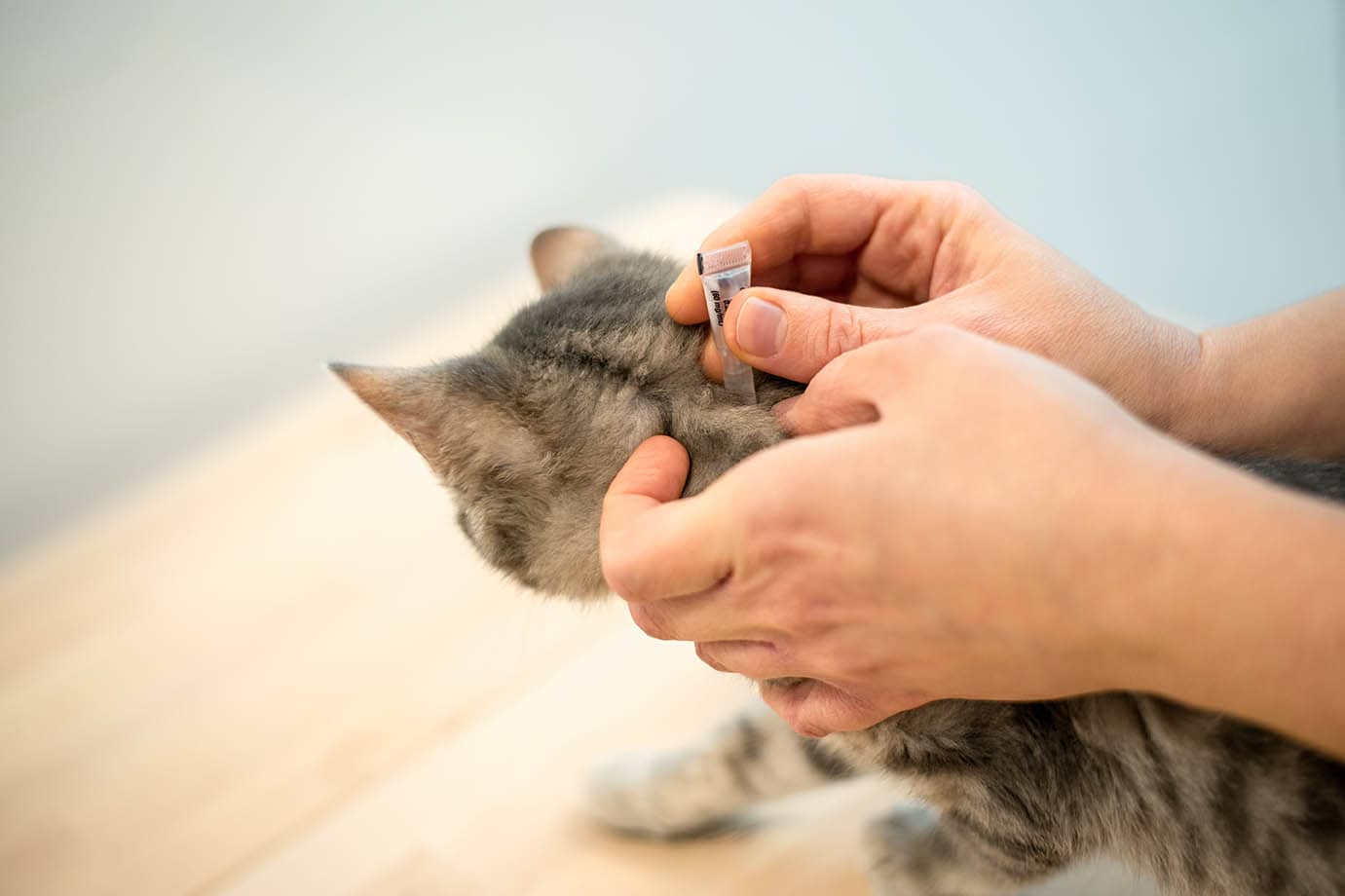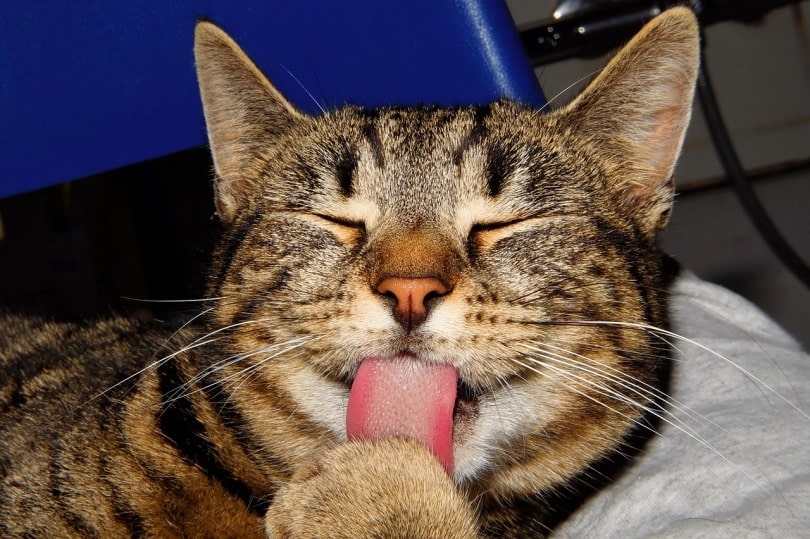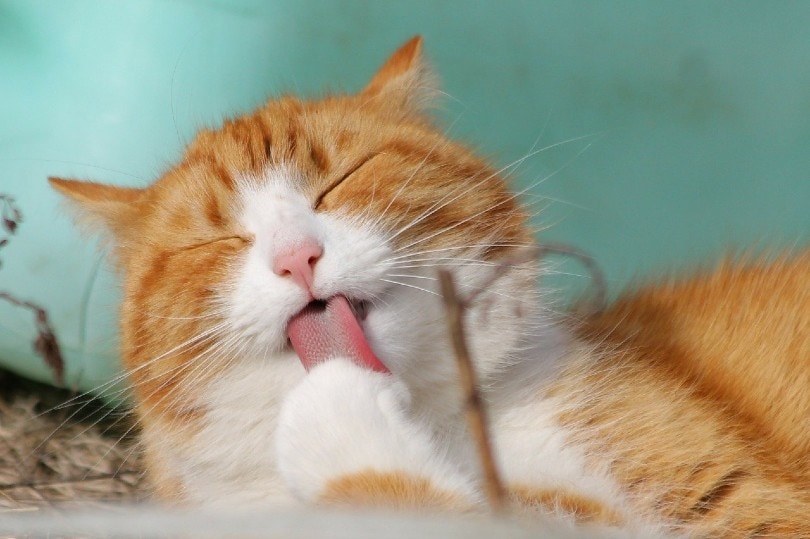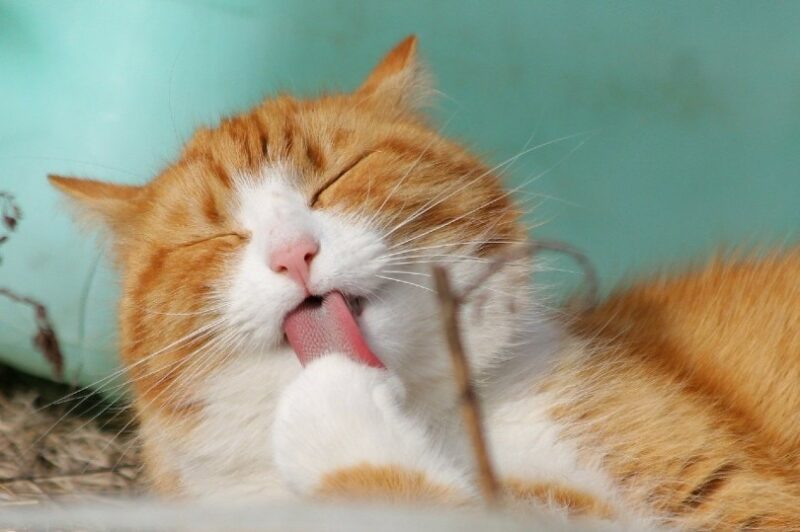Routine care for your cat will often include giving them a monthly or tri-monthly flea treatment. Thanks to modern medicine, this has never been easier, as flea medicine is now often found in topical form—where the medication can be applied directly to the skin and absorbed. This prevents the dreaded pilling of a cat, which has sparked many a funny memes and YouTube videos about the dreaded process.
However, that doesn’t mean that a topical application is always as straightforward as one might hope or expect. Cats are masters at causing trouble, and sometimes, applying flea medicine is no exception. In instances where the medication runs a bit, it is applied too far down on the body, or a cat scratches at it, they may also have the chance to ingest some of this medication.
Read on to learn about what to do when this happens!

How Do Topical Flea Medications Work?
The more modern forms of topical flea treatments are applied under the fur, directly to the cat’s skin. When doing so, make sure that you are using a cat-specific treatment, as some dog treatments can cause cats to get very ill, have a seizure, or even die!
Once applied to the skin, the medication spreads through the skin and is absorbed into the body. Often, this means the treatment will last for 30 days or longer.
Older flea medications may contain pyrethroids; flea treatments for dogs also often include these products. While they may be ok for dogs, they are definitely not ok for cats, and can cause severe toxicity and illness in this species. This article does not address these specific medications, but does highlight the need to ensure that your cat receives only cat-specific flea treatments.

What Signs Might I See if My Cat Licks or Eats Flea Medicine?
As mentioned, cats may lick flea medicine after it has been applied. In those instances, you might see clinical signs including the following:
- Drooling
- Lip smacking
- Frothing at the mouth
- Nausea or vomiting
Is it Dangerous if My Cats Licks Flea Medicine?
The answer is: it depends. In most instances, these medications have a fairly high safety margin, which means that licking or ingesting a small amount of the product shouldn’t cause problems for most cats. Further, this is only a concern when the product is still fresh or wet. Once it’s dry, licking of it shouldn’t occur. The above-mentioned signs seem to relate to the taste of the medication, rather than a reaction to the medication itself. However, if you have concerns, contact your vet or Animal Poison Control immediately.

Frequently Asked Questions (FAQs)
Why Did My Cat Lick the Flea Medicine?
Great question! Most cats like to be clean, fastidious creatures. Therefore, when we apply something foreign to their haircoat, it likely feels quite odd for them!
Further, the wet sensation of the liquid may cause them to want to lick their coat.
And finally, many of these products do have a smell. For cats, whose sense of smell is far better than ours, the smell is likely quite pungent and even offensive. To them, licking is the easy way to remedy the situation.

How Can I Prevent My Cat From Licking Flea Medication?
Placement of the medication is key. Begin by placing the medication high up enough on your cat’s body, so that they do not have access to lick the medication. This generally means somewhere on the back of their neck, or even the back of their head. However, cats can also get a hind foot up to scratch the area of flea medicine application, which can drag the product down the side of their neck to where they can lick it. Again, by putting the medication high on the neck or head, it should still limit their ability to access any of the spillages.
Also, some of these medications come in very reasonable volumes. Rather than applying the entire vial in the same spot, it can help to apply the product in two or three locations, which will limit the chances of the medication running.
What Can I Do to Help My Cat if They Lick Flea Medication?
If they lick flea medication after it is applied, consider offering them a tasty treat or two to help take the taste out of their mouth. This can include offering some treats, or something like tuna (assuming your cat isn’t allergic to fish!) to try and remove the bitter taste from the medication. In many instances, cats will refuse to eat the food in the heat of the moment, but it never hurts to offer.

Conclusion
In some instances, a cat that licks a cat-approved flea medicine might feel a bit nauseous or have a bad taste in their mouth. But it is uncommon that eating a small amount of the medication will lead to major concerns. However, if something doesn’t look or feel right, don’t hesitate to reach out to your vet, or to a Pet Poison Hotline.
Featured Image Credit: TeamK, Pixabay






